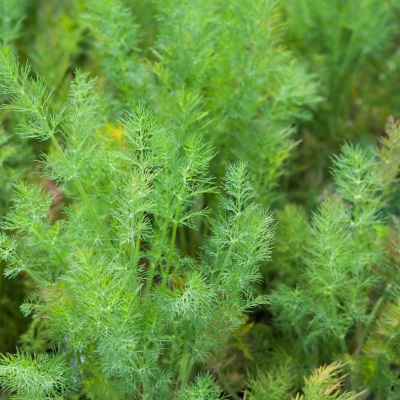Dill
Anethum graveolens Family: Umbelliferae

Overview
Dill is a fragrant and comforting herb traditionally used to support digestion, ease abdominal discomfort, and promote restful sleep—especially in children. Its seeds are gently calming and carminative, making them effective for indigestion, gas, and colic. Dill is also valued as a galactagogue, known to support lactation in nursing mothers. With its sweet, slightly spicy flavor and soothing aroma, Dill offers gentle yet effective relief, and has been cherished in folk practices to calm fussy babies and settle upset stomachs. It’s an accessible and nurturing herb that works well alone or in blends.
Traditional Uses:
Caution:
None
Fun Fact:
In Europe, small pillows filled with dill were placed in cradles so the scent would help babies get to sleep
Applications:
1-2 tsp seed, gently crushed, infused in 1 Cup boiling water or 1oz seed, gently crushed, for 1 pint of water taken up to 3 times daily; 15-30 drops tincture up to three times daily; take a cup of infusion before meals to help with flatulence
Parts Used:
Seeds
Habitat & Growing Conditions:
Native to southwestern Asia and the Mediterranean, now naturalized throughout Europe and North America, grows in US zones 3-11. Likes full sun and rich soil, sow directly in the garden as it doesn't like to be transplanted
Traditional Chinese Medicine Flavors:
Spicy, warm
Properties:
Key Constituents:
Sources:
The Way of Herbs, Michael Tierra p130
The New Holistic Herbal, David Hoffmann p196
Herbs An Illustrated Encyclopedia, Kathi Keville p36
These statements have not been evaluated by the Food and Drug Administration. This product is not intended to diagnose, treat, cure, or prevent any diseases. If you are under the care of a health care provider and/or taking prescription medication, check with your health care provider before taking any herbal supplement.
